Brave the chaos and venture into Brazil
Political scandals and the commodity collapse have hammered Brazil. However, the country still has great prospects and its stocks look cheap. It’s time to buy, says Matthew Partridge.

Get the latest financial news, insights and expert analysis from our award-winning MoneyWeek team, to help you understand what really matters when it comes to your finances.
You are now subscribed
Your newsletter sign-up was successful
Want to add more newsletters?

Twice daily
MoneyWeek
Get the latest financial news, insights and expert analysis from our award-winning MoneyWeek team, to help you understand what really matters when it comes to your finances.

Four times a week
Look After My Bills
Sign up to our free money-saving newsletter, filled with the latest news and expert advice to help you find the best tips and deals for managing your bills. Start saving today!
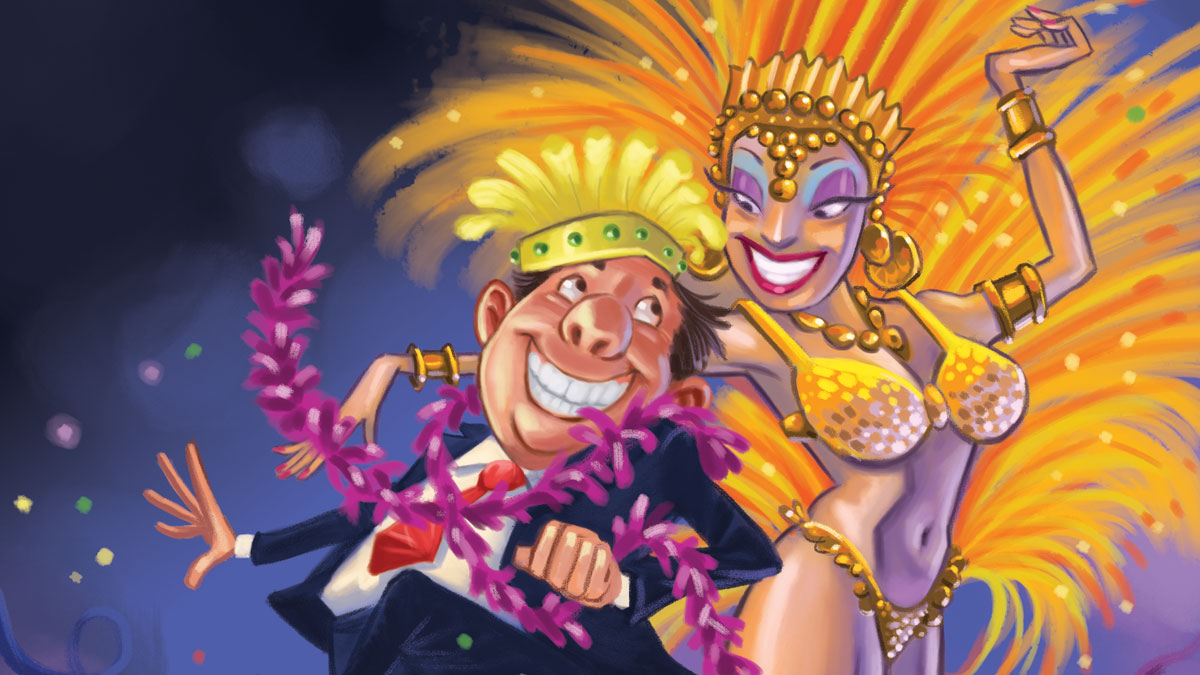
In 2001, Jim O'Neill, then at Goldman Sachs, coined the irritating-but-catchy "Bric" acronym to describe what he saw as the economic superpowers of the future: Brazil, Russia, India and China. Of the four, Brazil was always one of the most promising. Unlike Russia and China, it had healthy demographics in the form of a young, fast-growing population.
Unlike India, the political leadership was open to change during his two terms as president from 2003 to 2011, Luiz Incio Lula da Silva (Lula) proved surprisingly business-friendly, confounding fears that he would take a leaf from the book of Hugo Chavez's populist leftism in Venezuela. He invested in infrastructure and social welfare, balanced the budget and opened the economy up to foreign investment. Throw in vast natural resources, and Brazil looked very appealing.
As a result, the economy grew strongly, even during the global financial crisis. Real (after inflation) GDP grew by more than 50% in the decade from 2003. Better yet, the growth was enjoyed by all, unlike in previous booms according to the OECD think tank, around 50 million people joined Brazil's middle class during this period, boosting consumption and helping to diversify the economy.
MoneyWeek
Subscribe to MoneyWeek today and get your first six magazine issues absolutely FREE

Sign up to Money Morning
Don't miss the latest investment and personal finances news, market analysis, plus money-saving tips with our free twice-daily newsletter
Don't miss the latest investment and personal finances news, market analysis, plus money-saving tips with our free twice-daily newsletter
But perhaps the clearest sign of Brazil's growing power, both in relative and absolute terms, was the fact that skilled workers flocked there from Europe many of them from Portugal, Brazil's former colonial master. Unfortunately, Brazil is now grabbing headlines for all the wrong reasons. The economy is in a deep recession (GDP shrunk by 3.8% last year and is expected to fall by another 3.6% this year), while Lula's successor as president, Dilma Rousseff, is heading for impeachment.
So what went wrong? The collapse in the prices of commodities which account for more than half of Brazilian exports from 2011 onwards has been a key factor. And last year's drought, which resulted in water rationing in So Paulo, has flagged up the need for far more infrastructure investment Brazil's dependence on hydroelectric power means the drought has pushed up domestic energy prices, at a time when they were falling across the rest of the world. The Zika virus outbreak is hopefully a shorter-term problem, but a significant one ahead of the Olympics opening this summer.
Then there's politics and corruption. Most experts agree that Brazil needs continued reform and more infrastructure investment. Trouble is, the political system is highly fragmented, and Rousseff lacks Lula's coalition building skills. Meanwhile, the eruption of a massive bribery scandal surrounding state-owned oil firm Petrobras has made her the target of popular protest (even though there is no evidence of her direct involvement), and made it far harder for the government to win support for the projects required for continued economic growth.
Messy, but cheap
The country's woes have taken a nasty toll on the stockmarket at the start of this year, the benchmark Bovespa index was down roughly 50% from where it peaked five years ago. And little wonder, you might think between corruption, a collapse in export prices, drought and Zika, why would anyone invest? And yet, what's happened since the start of 2016 demonstrates quite clearly that sometimes the best investments are those that are the scariest to make.
Since hitting rock bottom towards the end of January, the Bovespa has already rallied by about 40%. Even in dollar terms, it's the best-performing market in the world this year. Yet it is still nearly 25% away from its peak, which suggests there could be plenty of room for prices to rise even further.
More importantly, it still looks good value. Yes, the price/earnings (p/e) ratio is an eye-watering 42, but that figure is distorted by the recent recession, which has hammered company earnings. Ratios that take a longer-term perspective, such as the cyclically adjusted p/e (Cape), tell a very different story. Brazil trades on a Cape of only 8.2 (as of 31 March). That compares favourably with the emerging-market average of 13.7, and a pricey-looking 24.6 for the US. Other valuation measures tell a similar story.
The average Brazilian firm is trading at a premium of around 40% to its book value (net assets), for example. That's better than the rest of Latin America, which trades at 1.8 times net assets, and is exactly half the US ratio of 2.8 times. Finally, the Brazilian market is also promising for those searching for income it offers a dividend yield of nearly 4%, much higher than the emerging-market average of 3.2% or the global average of 2.8%.
The beginning of the end
Another reason to buy into Brazil now is that the political crisis that has paralysed the country for over a year seems to be nearing its end. The opposition formally began the impeachment process in December, lodging a complaint accusing Rousseff of manipulating the country's accounts to hide the budget deficit. An investigation by Brazil's Congress backed the allegations, allowing the matter to come to a vote. Last week more than two-thirds of deputies in the Brazilian Congress voted against Rousseff. If the Senate agrees, she faces being turfed out of office. Naturally, she has vowed to fight, with some of her supporters claiming that the use of a legal technicality (massaging national accounts to make them look more flattering is hardly unusual) amounts to a political coup.
However, the various political scandals involving the ruling party in general have hugely damaged her credibility recent polls put her popularity at between 11% and 14%. So while there have been clashes between pro- and anti-government protestors, Rousseff is so widely disliked that the process seems likely to proceed smoothly.
Her successor is likely to be current vice-president Michel Temer. While there are still many who think that both should be impeached, the general consensus is that Temer is a more skilful backroom operator than Rousseff, and should be able to cut political deals to ensure the government's agenda is passed. He is also considered a more moderate leader than Rousseff, and sympathetic to more private investment and foreign involvement in the energy sector. He has promised to push through much-needed reforms to the retirement programme, to ensure its sustainability.
China's comeback
So what about the economy? Over the last decade, China has surpassed the US as the main destination for Brazilian exports (not counting the European Union as a unified bloc), with its insatiable demand for food, energy and metals. In 2014, 18% of Brazil's exports went to China, compared with 12% to the US. China's growth enabled Brazil to power through the financial crisis. But now China's sharp slowdown has pulled Brazil down too.
The good news for Brazil is that China is growing again, albeit at a far slower rate than the official 6.7%. Capital Economics notes that industrial production hit a nine-month high in March, and rising government infrastructure spending saw fixed asset investment rise by 11% year-on-year. Retail sales are surging. This tentative recovery is starting to buoy up commodity prices. Over the past two years, the Bloomberg Commodity Index has fallen by around 40%.
Even today, prices are still at less than half the peaks in 2011. However since mid-January the index has risen by nearly 15%. The rally has been particularly pronounced for some of Brazil's key exports the price of crude oil has shot up by more than 50%. Iron ore, which is even more important to Brazil, has surged too, with the delivery price in China rising by 20% in recent weeks.
Brazil isn't just a commodity story, though. The technology sector in particular is growing fast Brazil still has relatively low rates of internet access, with only half of the population online; but the sheer size of that population means it is already the world's fifth-largest web market. Growth is also spectacular, with e-commerce growing by around 20% a year and an estimated 100 million people expected to connect to the web in the next couple of years.
Industry insiders are already comparing the city of Campinas in southeast Brazil to Silicon Valley. It has one of the top technology universities in Latin America, while the appeal of being close to a huge number of start-ups has persuaded around a third of the world's major tech firms to establish a presence in Brazil's fourth-largest city. Campinas is not the only Brazilian technology cluster Santa Rita do Sapuca and Porto Alegre also host many tech firms.
Brazil has had a tough time in the last few years, and there may be more political and market turbulence to come. But the fundamentals still look good and given the fall in share prices in recent years, now looks a good time to buy in.
Eight investments to buy now
Investing in Petroleo Brasileiro (NYSE: PBR), AKAPetrobras, may seem like the ultimate contrarian play after all, it's the bribery scandal surrounding the giant oil company that has effectively destroyed Rousseff's administration (see story above). But it could also be one of the biggest beneficiaries of a change in leadership. Michel Temer, the president's likely successor, is expected to make changes to the firm that will enable it to cut costs and debts. It should also benefit from any upturn in energy prices. It trades at 6.7 times 2017 earnings and at a 50% discount to book value.
You can play the rise of the Brazilian middle class via brewer AmBev (NYSE: ABEV), controlled by global brewer AB InBev. It has a two-thirds share of the Brazilian market, which is growing at around 5%-6% a year. The company trades at a relatively high 2017 p/e of 18. However, that's a lower multiple than either its parent or most other major global brewers. The stock has a strong balance sheet, sound growth prospects and yields more than 4%.
Embraer (NYSE: ERJ) is another Brazilian success story, muscling its way into the small-to-medium-sized jet market. It stands to benefit hugely from global growth in air travel. The development of the KC-390, Embraer's entry into the military transport jet market, is back on schedule, and it has already drawn interest from a wide range of countries. These successes leave it perfectly poised to take on big rivals such as Boeing.
Brazilian bank Itau Unibanco (NYSE: ITUB) has been trying to avoid the effects of the current recession by expanding into other Latin American countries. It has also made a concerted effort to cut the quantity of risky loans on its books. It has continued to make high returns on capital, demonstrating that it is run efficiently.
Both Brazil and the wider continent have underdeveloped banking markets, which allow plenty of room for expansion once the economy starts to recover. JP Morgan believes it should enjoy revenue growth of around 6% a year for years to come. Despite this, its shares trade on a forward p/e of seven.
Telefonica Brasil, more popularly known as Vivo (NYSE: VIV), delivers both fixed line and mobile phone services, including internet and satellite television. With only half the population online, and Brazil's middle class growing rapidly, Vivo's potential is huge. As well as adding customers, Vivo is increasing its range of services, with the aim of boosting margins. It trades on a 2017 p/e of around 15, and offers a yield of 4.7%.
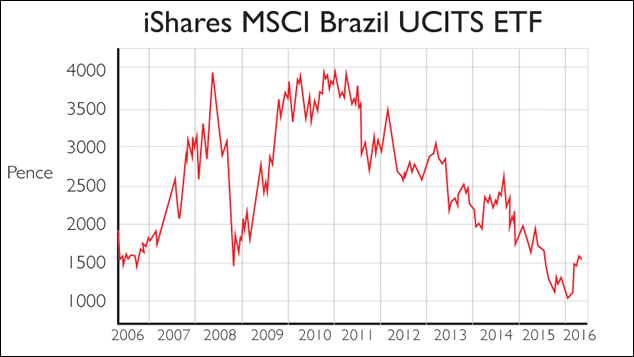
If you're interested in a more general play on Brazil, try an exchange-traded fund (ETF). The most comprehensive is the iShares MSCI Brazil Capped ETF (NYSE: EWZ), which covers the largest companies (those accounting for 85% of the market), and has a total expense ratio of 0.64%. The iShares MSCI Brazil UCITS ETF (LSE: IBZL) is the UK version, with a charge of 0.74%. For the adventurous, the iShares MSCI Brazil Small-Cap ETF (Nasdaq: EWZS) focuses on smaller companies. It has fallen harder than the wider market but has huge upside potential during any recovery.
Sail to profit on the prevailing winds
Since January, Brazil has rallied strongly as commodities have bouncedand the US dollar has slid in what many call a "trash rally", writesCharlie Morris. I prefer to call it a "momentum crash", because theprevailing winds have changed. Not only have poorly performing stocksdone well, but many winners such as biotech and healthcare haveturned sour.
The "momentum effect" whereby stocks that have goneup keep going up, effectively has long been identified by academics.But when it goes too far, it crashes and the market reverses. All valueinvestors should pay attention to momentum. Identifying value is easy,but timing when to buy it is more difficult. Yet it is in crashes like thesethat value performs best.
Few doubt that Brazilian equities offer good value, having fallen backto the 2008 lows in dollar terms. The news is bad, sure but that's thenorm in a distressed situation. Investors shouldn't seek good news just evidence that Brazil isn't a failed state. And looking at credit defaultswaps (a measure of sovereign risk), investors are less concerned abouta default than they were. It cost 5% to insure against default in January,compared to 3.6% now.
Furthermore, the currency has stabilised, asten-year inflation expectations have fallen from 9.5% to 7%. At 9.5%, thatimplies that 100 Brazilian reals would have a purchasing power of 40in 2026. That has now improved to 50 so the money will only halve invalue. That may not sound great but the point is that it's moving in theright direction.
Charlie Morris writes for the Fleet Street Letter.
Get the latest financial news, insights and expert analysis from our award-winning MoneyWeek team, to help you understand what really matters when it comes to your finances.

-
 Japanese stocks rise on Takaichi’s snap election landslide
Japanese stocks rise on Takaichi’s snap election landslideJapan’s new prime minister Sanae Takaichi has won a landslide victory in a snap election, prompting optimism that her pro-growth agenda will benefit Japanese stocks
-
 Alphabet 'is planning a 100-year bond': would you back Google for 100 years?
Alphabet 'is planning a 100-year bond': would you back Google for 100 years?Google owner Alphabet is reported to be joining the rare century bond club
-
 Governments will sink in a world drowning in debt
Governments will sink in a world drowning in debtCover Story Rising interest rates and soaring inflation will leave many governments with unsustainable debts. Get set for a wave of sovereign defaults, says Jonathan Compton.
-
 Why Australia’s luck is set to run out
Why Australia’s luck is set to run outCover Story A low-quality election campaign in Australia has produced a government with no clear strategy. That’s bad news in an increasingly difficult geopolitical environment, says Philip Pilkington
-
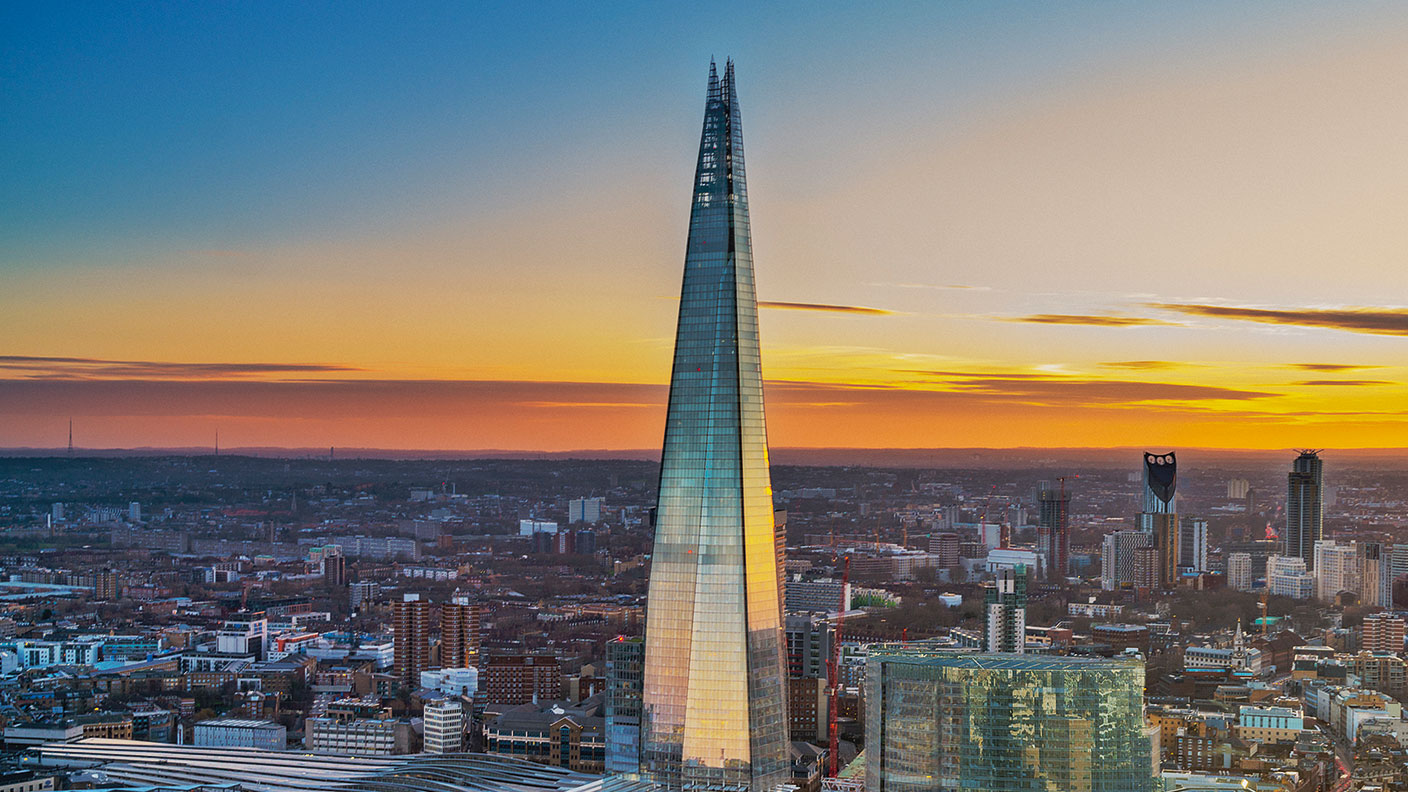 Why new technology is the future of the construction industry
Why new technology is the future of the construction industryCover Story The construction industry faces many challenges. New technologies from augmented reality and digitisation to exoskeletons and robotics can help solve them. Matthew Partridge reports.
-
 UBI which was once unthinkable is being rolled out around the world. What's going on?
UBI which was once unthinkable is being rolled out around the world. What's going on?Cover Story Universal basic income, the idea that everyone should be paid a liveable income by the state, no strings attached, was once for the birds. Now it seems it’s on the brink of being rolled out, says Stuart Watkins.
-
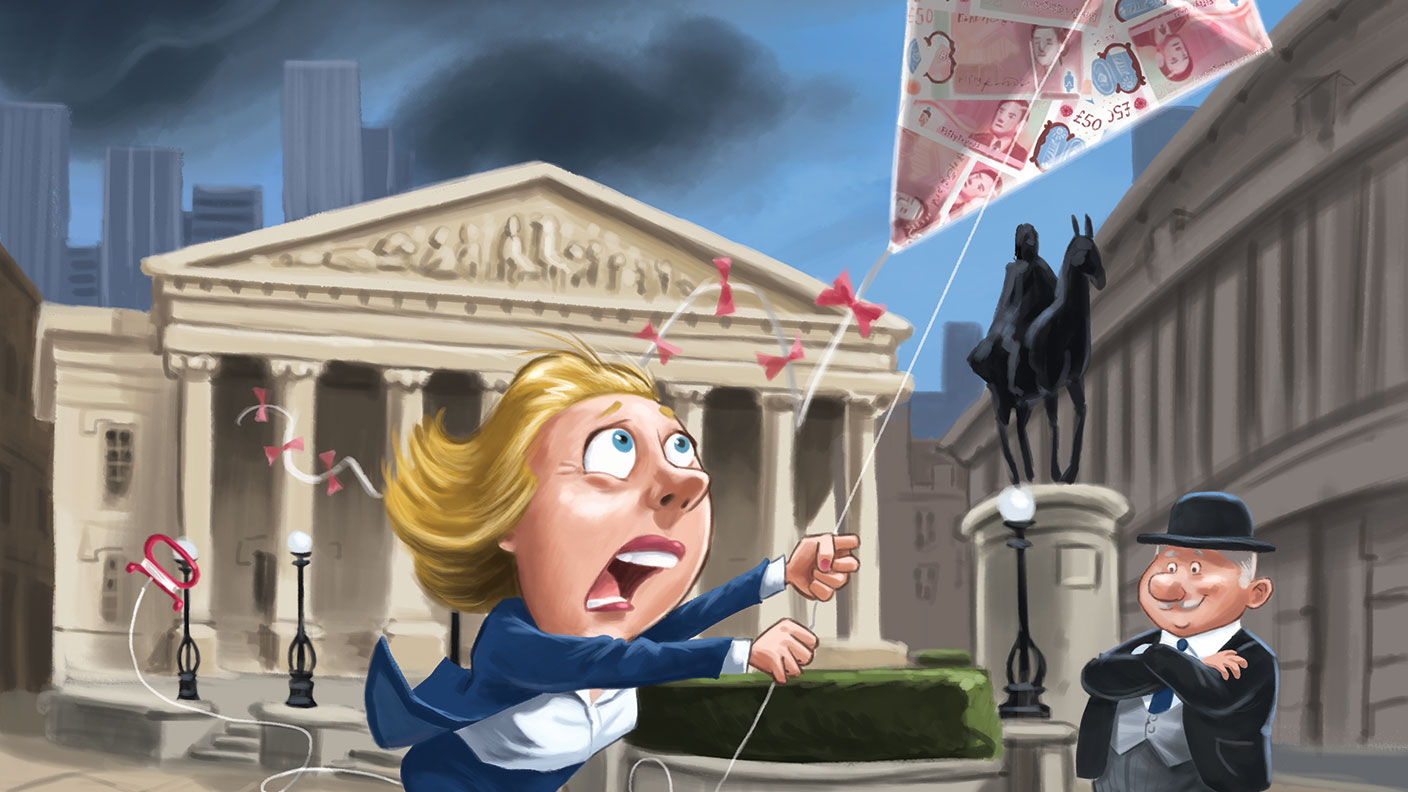 Inflation is here to stay: it’s time to protect your portfolio
Inflation is here to stay: it’s time to protect your portfolioCover Story Unlike in 2008, widespread money printing and government spending are pushing up prices. Central banks can’t raise interest rates because the world can’t afford it, says John Stepek. Here’s what happens next
-
 Will Biden’s stimulus package fuel global inflation – and how can you protect your wealth?
Will Biden’s stimulus package fuel global inflation – and how can you protect your wealth?Cover Story Joe Biden’s latest stimulus package threatens to fuel inflation around the globe. What should investors do?
-
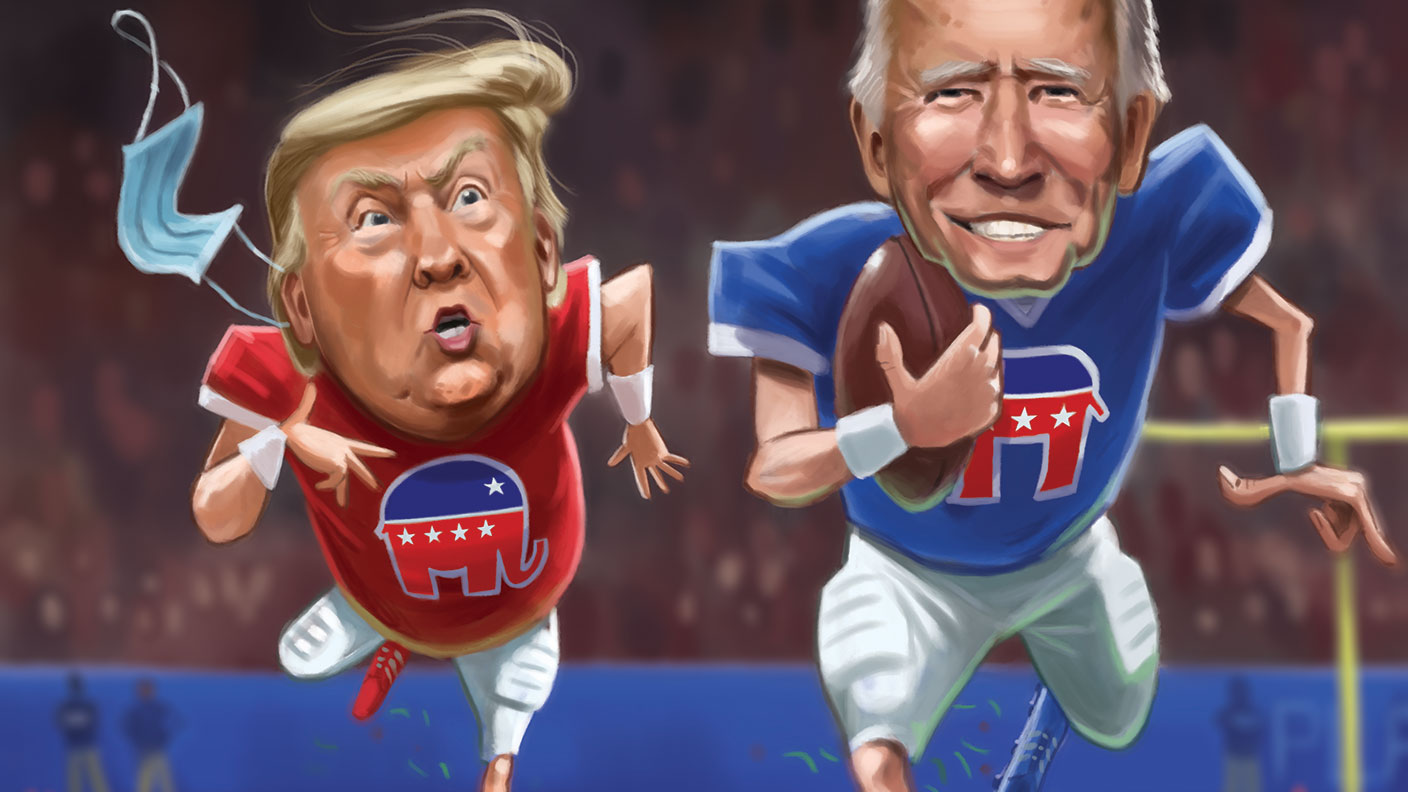 What the race for the White House means for your money
What the race for the White House means for your moneyCover Story American voters are about to decide whether Donald Trump or Joe Biden will take the oath of office on 20 January. Matthew Partridge explains how various election scenarios could affect your portfolio.
-
 What’s worse: monopoly power or government intervention?
What’s worse: monopoly power or government intervention?Cover Story Politicians of all stripes increasingly agree with Karl Marx on one point – that monopolies are an inevitable consequence of free-market capitalism, and must be broken up. Are they right? Stuart Watkins isn’t so sure.